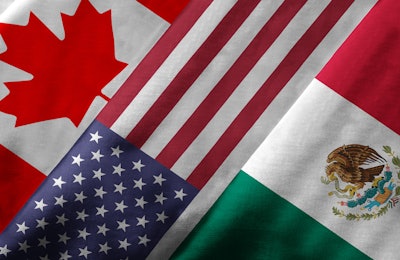
As the United States-Mexico-Canada Agreement (USMCA) takes effect July 1, U.S. officials stress the importance of monitoring the situation so that the three involved countries are complying with the conditions of the agreement.
Rep. Collin Peterson, chairman of the U.S. House agriculture committee, called USMCA a “very positive thing,” for the United States “at a time when we need positive signs in agriculture.”
The timing of the enactment of USMCA is not lost on Peterson, who said the COVID-19 pandemic is likely to add extra challenges for fair trade.
“We need to be vigilant, because there are … some troubling signs out there of people using COVID as a reason to put up trade barriers,” Peterson said on June 30 during a conference call hosted by Farmers for Free Trade. “We need to be vigilant and we need to make sure that the agreement is enforced, and it goes into place the way it was intended.”
One concern of Peterson’s involves Canada. Peterson, D-Minnesota, represents the district which includes the Northwest Angle of Minnesota. Because of its geographical location, when people travel by land, they can only get to the Northwest Angle by driving through Canada. Canada currently has its borders closed because of the COVID-19 pandemic. He questions whether such restrictions are compliant with USMCA.
Also speaking during the call was Rep. Ron Kind, D-Wisconsin, whose concerns are similar to those of Peterson.
“The work doesn’t stop when you sign an agreement. It’s only just beginning,” said Kind, a member of the House Ways and Means Committee’s subcommittee on trade. “(We need to) make sure Mexico and Canada adhere to the terms. We have work to do as far as oversight and compliance issue.
Key areas to watch, according to Kind, include Canadian dairy policy, trade involving poultry, eggs and lumber, and adherence to sanitary and phytosanitary standards.
USMCA was designed as a replacement for the North American Free Trade Agreement (NAFTA), which was enacted in 1994. The three countries signed the agreement in November 2018. Mexico was the first to ratify the agreement, doing so on June 19, 2019. The U.S. ratified USMCA in January 2020, and Canada ratified USMCA in March 2020.
View our continuing coverage of the coronavirus/COVID-19 pandemic.


















